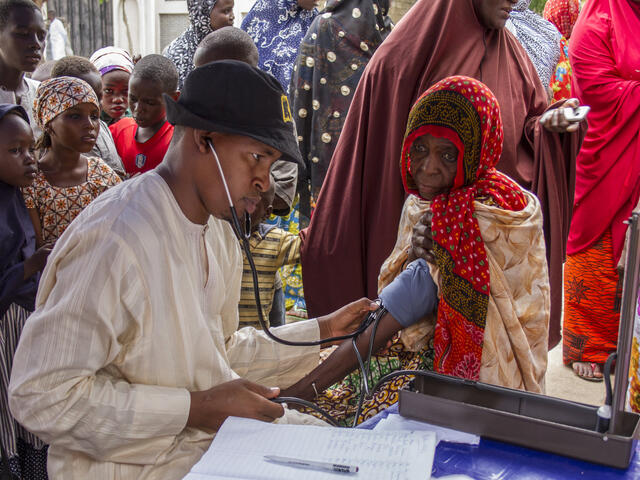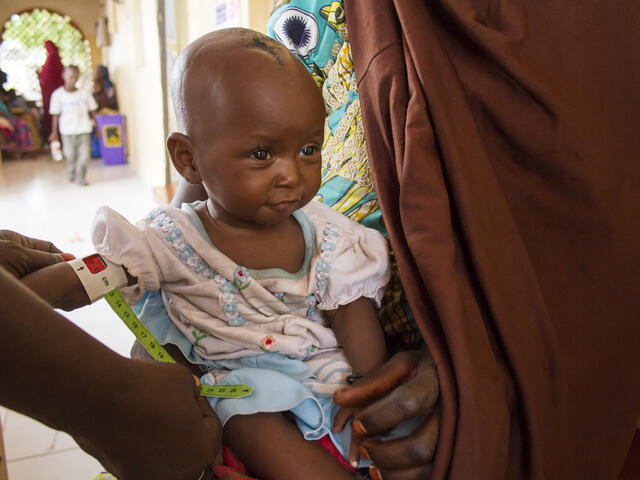IRC ramps up emergency response for Nigerians fleeing Boko Haram terror
The IRC is expanding aid for survivors of terror in northeastern Nigeria while calling attention to the plight of hundreds of thousands of people still trapped by violence.
The IRC is expanding aid for survivors of terror in northeastern Nigeria while calling attention to the plight of hundreds of thousands of people still trapped by violence.
The International Rescue Committee is significantly scaling up our humanitarian response in northeastern Nigeria, where hunger and famine threaten people who have lived in the grip of Boko Haram terror over the past four years.
As a Nigerian government offensive drives back the violent militant group, thousands of people are fleeing to Maiduguri, the capital of Borno state, in search of aid. Many are visibly malnourished.
Some 1.4 million people are now living in overwhelmed camps in and around the city. Aid agencies are working feverishly to cope with the surge in new arrivals but fear even worse conditions for those still trapped in Boko Haram-held areas.

“What we’ve found to date in many of the recently opened areas has been alarming,” said IRC emergency field director Lani Fortier in Maiduguri, “and you can see the high rates of malnutrition here in the capital. But what we’ve yet to find is likely to be much, much worse than anyone anticipated.”
In the coming weeks, the IRC will expand emergency cash relief programs to enable uprooted families to buy food, and will bolster counseling and other psychosocial support services to women and children who have suffered through violence and emotional trauma.
Malnutrition on the rise
Cases of malnutrition are surging as families flee areas where sources of food and the means of making a living have been destroyed by war and drought. The IRC has opened a new IRC malnutrition stabilization center in a Maiduguri hospital to screen children, provide emergency food, and treat the most complicated cases.
Falmata Usman brought her daughter to the clinic when the six month old showed distressing signs of severe acute malnutrition. “My baby is sick because of a lack of enough food,” said Falmata, whose family had to leave their farm two years ago.

The IRC also recently started providing aid to hundreds of people arriving each week in Monguno, a city on the front lines of the war between the Nigerian military and Boko Haram fighters.
Reaching remote villages
UNICEF estimates that 49,000 children in northeastern Nigeria who are at risk of severe acute malnutrition will die this year if aid does not reach them first.
The IRC is sending five mobile medical teams to bring nutrition screenings and healthcare to remote villages where access to health services is dangerously limited. We’ll also build and rehabilitate water sources to ensure that these communities have access to clean water. And we plan to construct latrines and provide sanitation services and hygiene education to help prevent the spread of disease.
The IRC first started working in Nigeria in 2012 in response to massive flooding. In 2014, we launched our emergency response for survivors of Boko Haram. Although this response has grown into the IRC’s largest, we are concerned that hundreds of thousands of people trapped by violence in the country remain out of reach of aid. And with Nigeria’s economy in free fall, prospects are grim for people in this embattled region.
Learn more
Explore the IRC's work in Nigeria.
Get involved